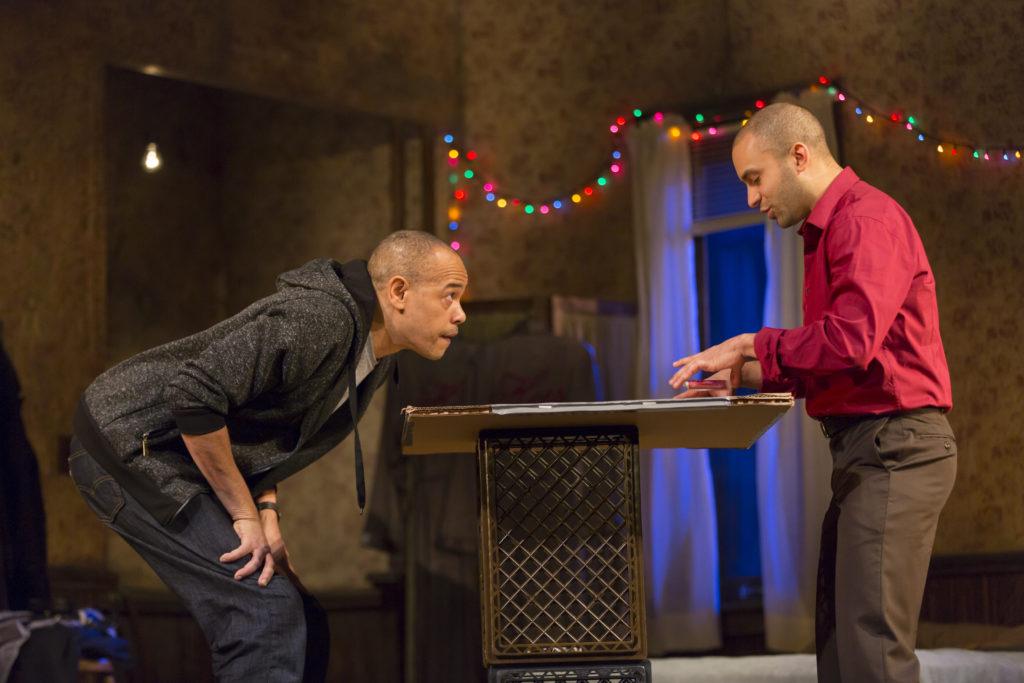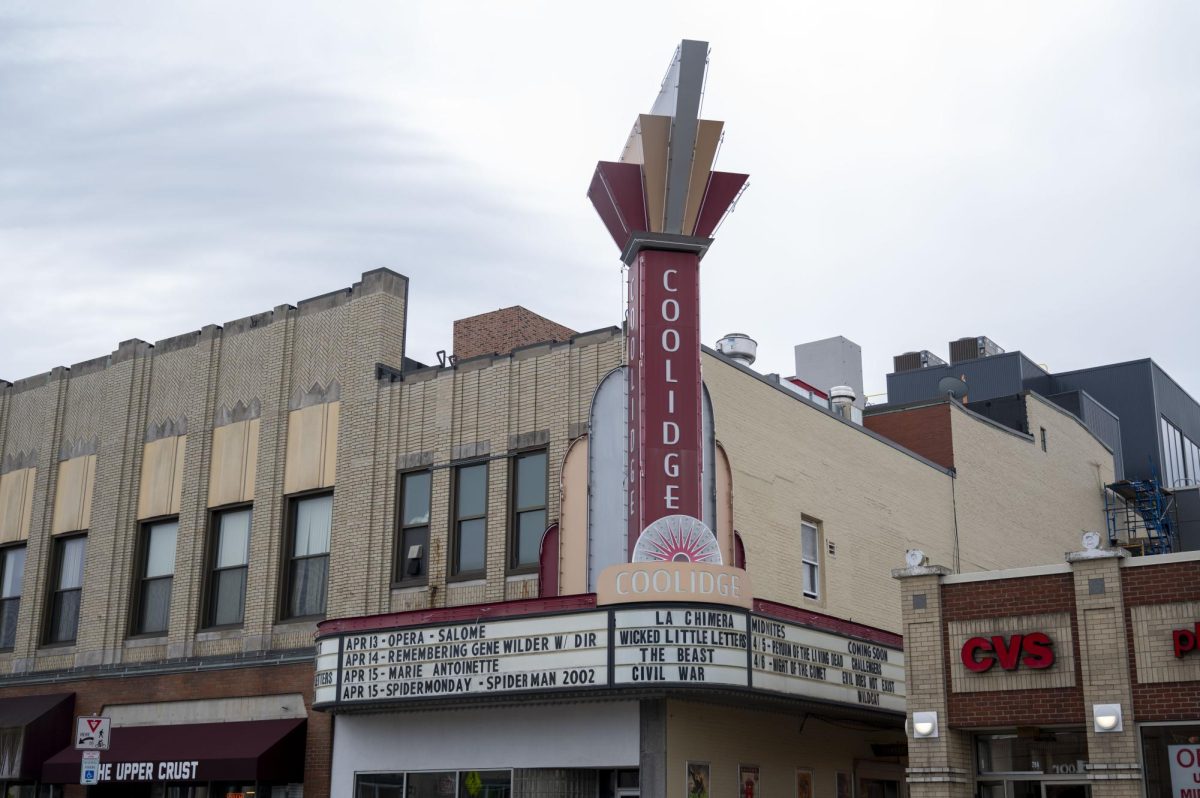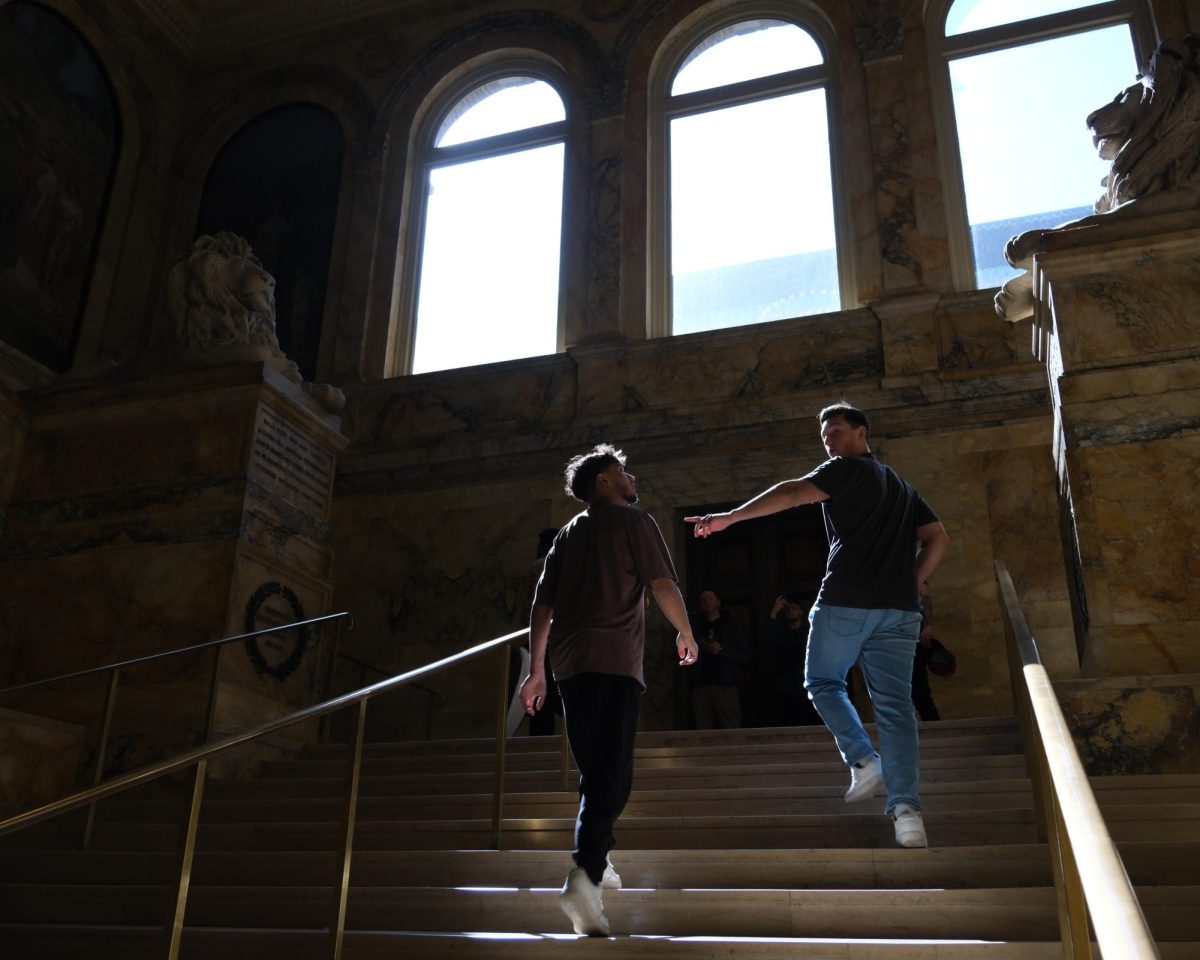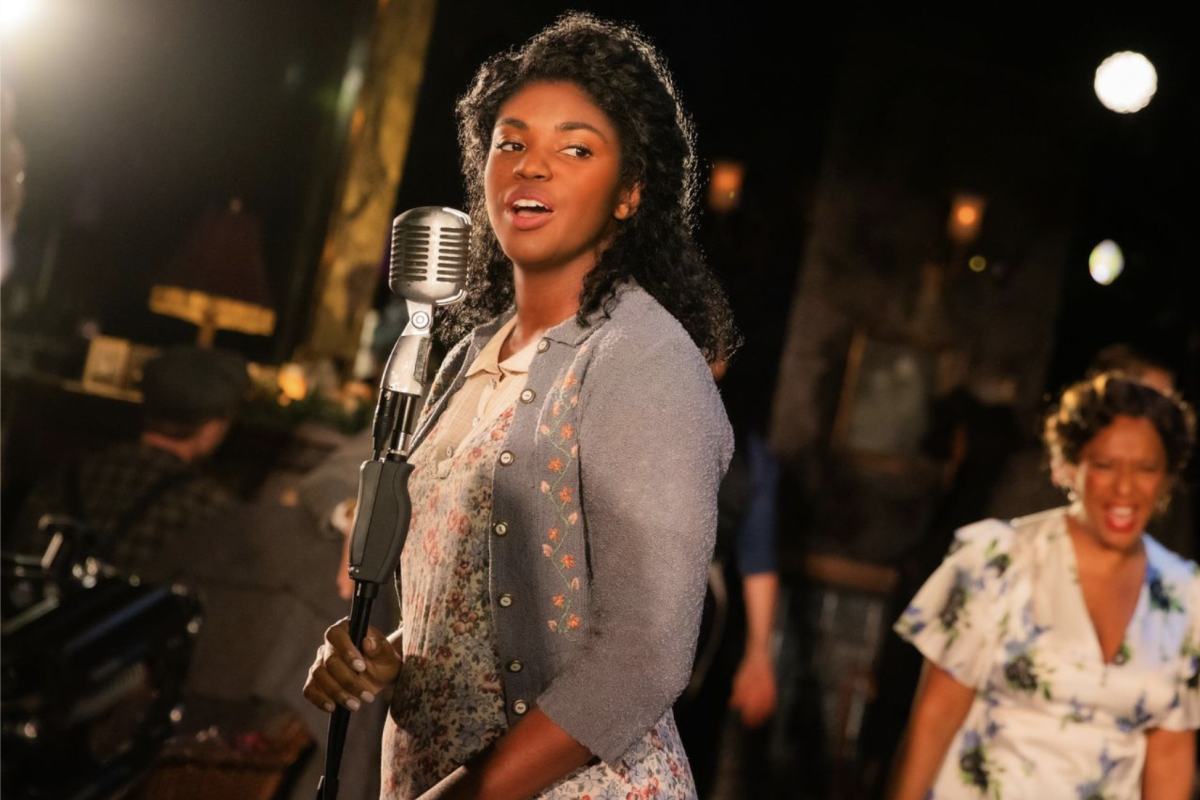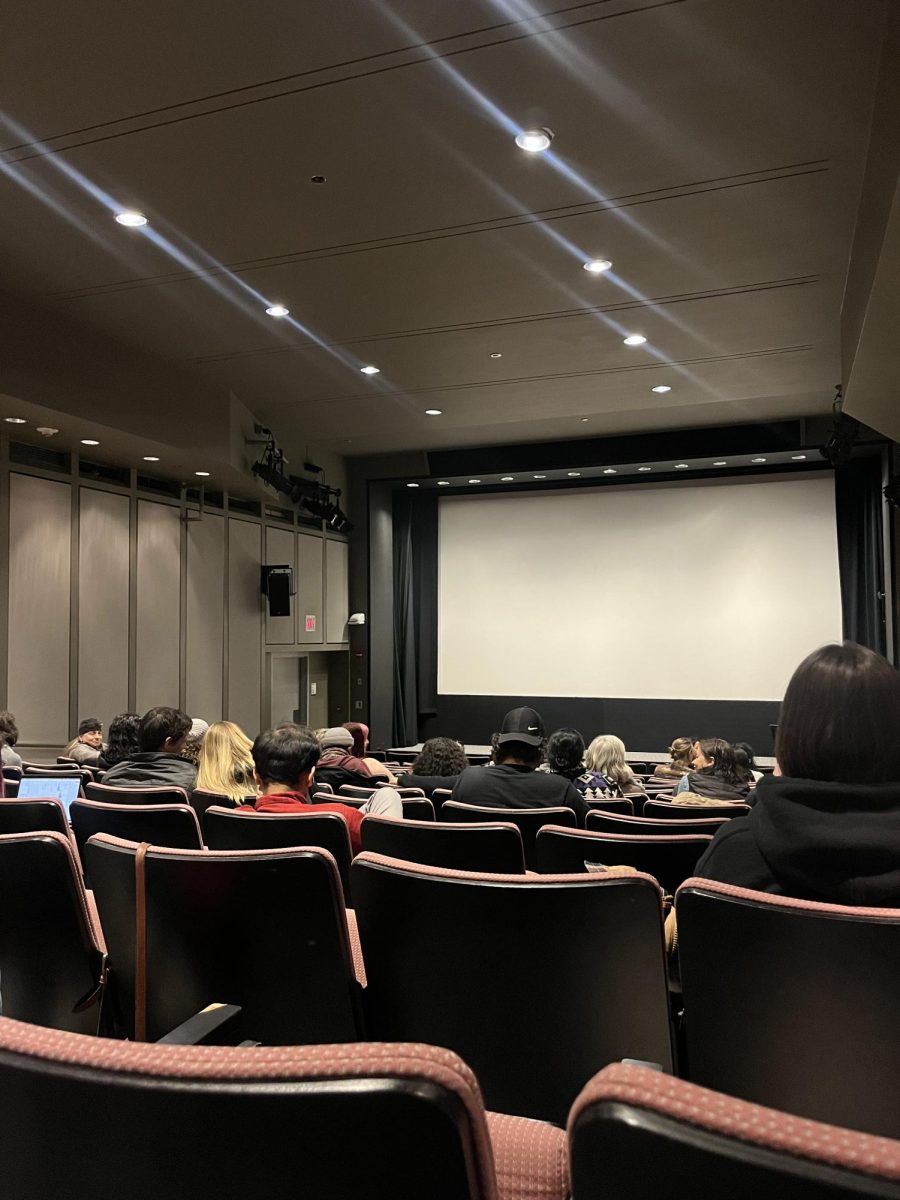By Juan A. Ramirez, A&E columnist
Right from the start, our attention is drawn to the nature of artifice and performance. We see one of our main characters standing at the center of a run-down bedroom, frenetically rehearsing his three-card monte con.
He’s trying to become as good a card shark as his older brother, we learn later, and rehearsal and repetition are key. If Booth can’t live up to this self-imposed expectation, where does that leave him? And for what exactly is he saving the $500 his mother left before skipping town?
Such questions are at the heart of “Topdog/Underdog,” which opened in a new production by the Huntington Theatre Company on Wednesday, March 15. Directed by Tony Award winner Billy Porter, the play is about the suffocating traps set upon us by our families, our communities and ourselves. Set in a low-rent boarding house room that refutes any particular decade or location and flanked by jagged spikes that insulate us from the trouble outside, the existential claustrophobia at the heart of Suzan-Lori Parks’ Pulitzer Prize winner is turned up to a scorching degree.
Booth, a serial narcissist in his early 30s who spends his time either shoplifting fancy suits or bragging about his ability to satisfy his unseen girlfriend, would have rather inherited his older brother Lincoln’s swindling skills. A former master of the street corner, Lincoln now works as an Honest Abe impersonator at an arcade where children pay to “shoot” him. Their names? Booth says they were their father’s drunken idea of a joke—or was it Booth who was drunk when he learned this? No matter.
When Lincoln moves in with Booth—a “temporary arrangement,” to be sure—they find themselves caught in the sort of tormentous cycle chamber pieces such as this indelibly explore. Cut off from the outside world and further relying on each other for validation and security, the two brothers exist to face off against each other, their down-and-out fates and the looming spectres of their long-gone parents—anything but themselves.
Parks, whose work often deals with the plight of black Americans and the codependency fostered by broken environments, has crafted a play that deftly pits brother against brother without ever victimizing or condescending to either of them. What we’re given here—and what, in 2002, amounted to the first ever Pulitzer Prize for Drama awarded to a black American—is a modern tragedy in which our fates correspond to the hands we’re dealt.
Framed by scenic designer Clint Ramos’ sinister spikes, which jut out from the brothers’ cramped world into the audience, are two actors functioning at peak performance despite the believably lived-in nature of their portrayals. Tyrone Mitchell Henderson imbues Lincoln with the world-weariness and withdrawal one might expect from someone who has renounced their own agency and comfortably settled into the role of big brother.
His languorous drawl makes for an electric counterpoint to Matthew J. Harris’ mile-a-minute prattle as perennial younger brother Booth. Harris’ overhyped charisma catalyzes the show into motion and keeps us attentive with his Napoleonic thirst for success, but it is Henderson’s dethroned resignation that provides the show it’s tragic backbone.
Though I doubt any production of a work as potent as this could be said to drag, it is much to Porter’s credit that the production never loses its laser-sharp focus; the director allows the two actors to make the most of their roles, playing off each other in much the same way two siblings might at a point in their lives when all hope for stability lies in the cards. As they rehash past narratives—some self-adjusted, some purposely vague—Porter moves them among screens and shadows, constantly building and destroying the partitions between them.
“Topdog/Underdog,” which elbows its way into themes of poverty, sibling rivalry, racism, pride and expectation, presents us with an unstable microcosm at a time rife with such bubbles. The genius of Parks’ writing is that it never resorts to cheap melodrama or topicality while remaining a profoundly theatrical, achingly contemporary work. In fact, did I mention the play is incisively funny? Booth and Lincoln, in their desperate attempts to one-up themselves, become tragic caricatures of the highest order—the kind seen in works from the Greeks, Shakespeare and Arthur Miller.
Porter’s production cements Parks’ position in the pantheon of great dramatists and gives us a theatrical experience to behold. It is best to allow yourself to be swept up into the brothers’ derelict world to fully comprehend the piece’s brilliance. Careful, though: Much like the unsuspecting saps the brothers love to swindle, you might walk away unable to pinpoint just who and what, exactly, you’ve encountered, but knowing full well you’ve been complicit in a first-rate show, in which the cards were never in anyone’s favor.
“Topdog/Underdog” is in performance at the Boston University Theatre through April 9.
Photo courtesy T. Charles Erickson







